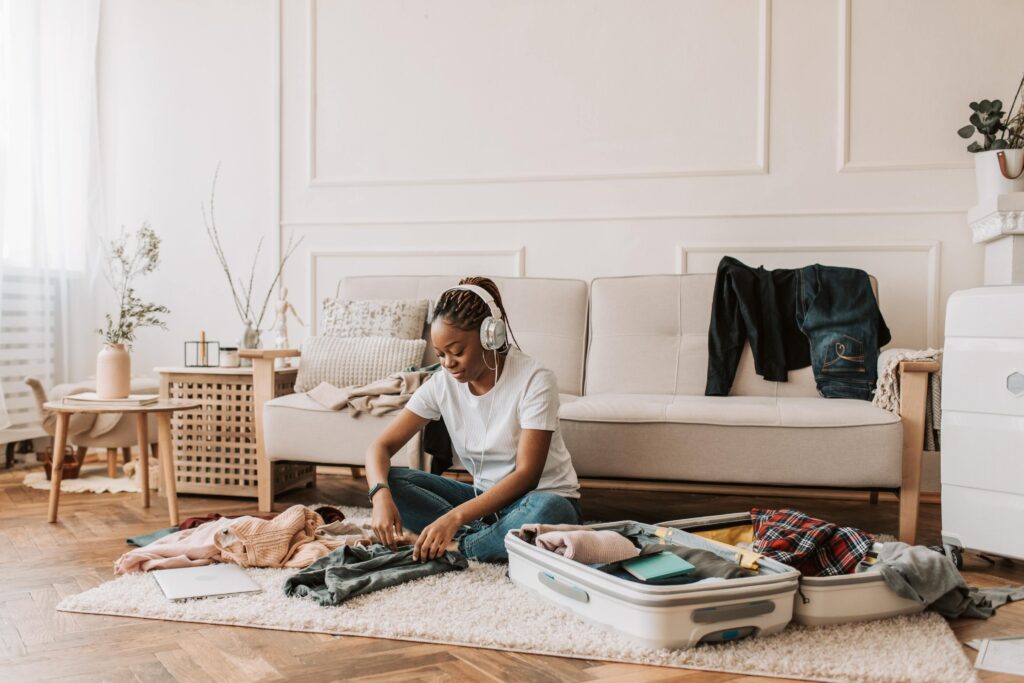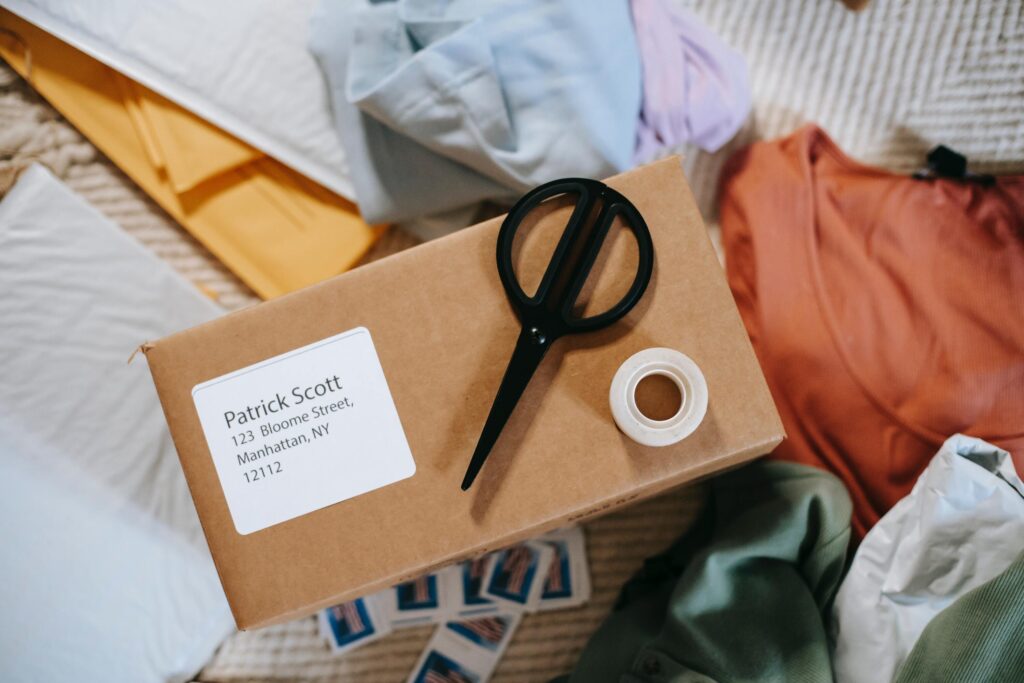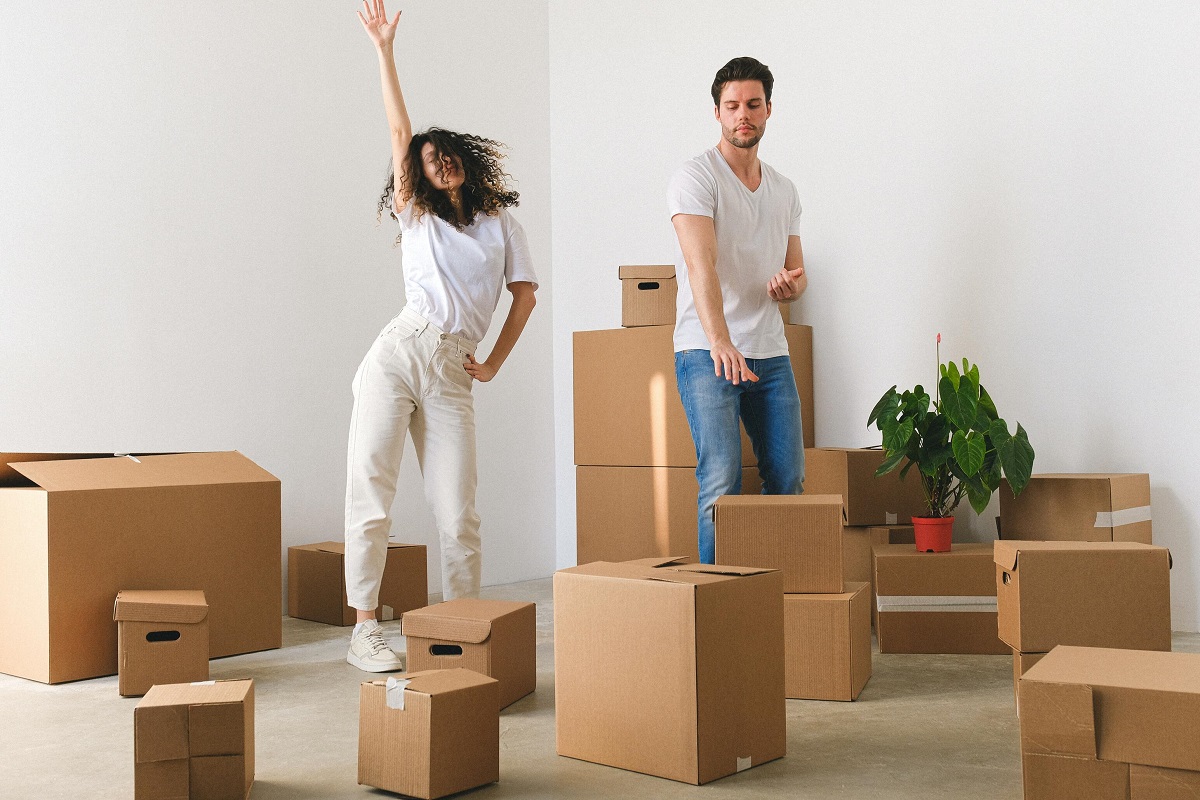In our lives, accumulating staff is very frequent habit. We may not even realize it, but the things we own add up over time. This can be anything from clothes to furniture to books. And while some accumulation of stuff is inevitable, it’s essential to be mindful of what we’re acquiring and why.
One reason for this is that accumulation can often lead to clutter. Clutter makes it difficult to find things and can also be a physical and mental burden. It can sap our energy and make us feel overwhelmed. As a result, it’s essential to be thoughtful about the things we bring into our lives – both quantity and quality.
So what are the 10 steps to decluttering your home?
Here they are:
1. Make a plan. Before you start decluttering, it’s helpful to have a plan. This will give you a roadmap to follow and help keep you on track.
2. Start with one area at a time. It can be tempting to declutter your entire home all at once, but this can be overwhelming. It’s much better to take it one step at a time. Start by decluttering one area – maybe your kitchen or your bedroom.
3. Set some rules for yourself. When you’re decluttering, it’s important to set some ground rules for yourself. For example, you may want to decide that you’re only going to keep items that have a specific purpose or that you’re going to get rid of one item for every new item you bring in.
4. Be ruthless. When decluttering, it’s important to be ruthless. If you don’t need it, want it, or love it, then get rid of it.
5. Don’t procrastinate. One of the biggest dangers of decluttering is procrastination. It can be tempting to put it off, but you’ll only end up creating more clutter if you do. So commit yourself to start and finish the task at hand.
6. Create a system for organizing your belongings. Once you’ve decluttered your home, it’s important to create a system for organizing your belongings. This will make it easier to find things and keep your home tidy.
7. Use storage solutions. If you don’t have enough space to store all your belongings, use storage solutions. This can include everything from shelving units to boxes and baskets.
8. Make use of vertical space. Often, we forget about the vertical space in our homes. But if you use shelves and hooks, you can make use of this space and declutter your home simultaneously.
9. Don’t be afraid to get rid of things. One of the biggest obstacles to decluttering is fear – fear of getting rid of things we might need one day or fear of what others will think. But the truth is, you don’t need all of this stuff, and getting rid of it will free up space and energy in your home.
10. Don’t be tempted to bring things back in. Once you’ve decluttered your home, be vigilant about not bringing things back in. This is one of the biggest challenges people face when decluttering their homes, but if you can stick to it, you’ll be able to keep your home clutter-free for good.

Another reason for being mindful of our accumulation is that it can often signify underlying issues. For example, if we’re constantly buying new things, it may be because we’re not happy with our current situation and are looking for something to make us feel better. Or, if we have many unused items, it may be because we’re struggling with procrastination or perfectionism.
So, how can you be mindful? Here are a few tips:
–Be mindful of your triggers. If you know that you tend to buy things when you’re feeling stressed or down, then be mindful of this and try to redirect those feelings. For example, you can try to do some breathing exercises or walk outside.
-Create a budget. When you’re mindful of your spending, it can be easier to stick to a budget. Try to create a budget for yourself and track your spending over time. This will help you see where you might be overspending and make changes accordingly.
-Think long-term. When buying something, ask yourself if you’ll still want it in six months or a year. Often, we buy things impulsively without thinking about the long-term consequences. But if you take the time to think about it, you may realize that you don’t need it.
-Take your time. When you’re considering buying something, give yourself time to decide. Often, we’re so tempted to buy things on impulse, but if we take the time to think about them, we may realize that we don’t need them.
-Be aware of your surroundings. Another way to be mindful is to be aware of your surroundings. For example, when you’re out shopping, know how many things you see that you want to buy. Try not to get caught up in the moment and make rash decisions.
-Think about the consequences. Another thing to consider is the consequences of buying something. For example, if you buy many things that you don’t use, you may end up with a lot of clutter in your home. Or, if you buy many things on credit, you may end up with a lot of debt.
–Make a list. When you’re considering buying something, make a list of pros and cons. This can help you see the situation more objectively and make a more informed decision.
Well, so many people asked, why the accumulation of stuff?
The answer is straightforward; I will share with you 10 reasons people accumulate stuff.
1. Greediness: Nowadays, so many people are greedy. They want to have more and more material possessions.
2. To fill the emptiness: People accumulate stuff because they are not content with who they are and what they have. They try to fill the emptiness in their lives with material possessions.
3. To show off: Some people accumulate stuff to show their wealth or status.
4. Habit: We get into the habit of buying things, and before we know it, our homes are full of clutter.
5. Fear of loss: We often hold on to things out of fear that we will lose them if we let go.
6. Perfectionism: Some people are perfectionists and feel like they need to own every book, every CD, and every piece of clothing to be perfect.
7. Lack of self-confidence: People who lack self-confidence may try to fill the void by buying things.
8. Desire for control: Some people accumulate stuff because they feel like they need to control their lives and everything in it.
9. Avoidance of change: Change can be scary, so some people try to avoid it by clinging to what’s familiar – even if that means having a lot of clutter in their lives.
10. To cover up emotional pain: In some cases, people accumulate stuff to cover up emotional pain.
So these are some of the reasons why people accumulate stuff. It’s important to be mindful of why we’re doing it and ensure that our accumulation doesn’t lead to clutter and other problems.
So what can we do to be more mindful of our accumulation?

One thing is to ask ourselves some questions before buying something new:
– Do I need this? This question is there for you to reflect that if you are buying something and it’s not a need, it’s a want.
– What will I do with this once I have it? This question is to help you be realistic about how much stuff you can handle and what happens when you don’t need it or don’t use it.
– Do I already have something similar? This question will help to declutter your life by realizing if you have something similar to what you’re buying.
– Will this make me happy? This question is vital because material possessions cannot bring lasting happiness.
– Will this add value to my life? This question is similar to the last question, but it focuses on if the thing you’re buying is worth your time and money.
– How will I use this? This question is to help you be creative and use the thing you’re buying in a way that you haven’t before.
– Where will this go? This question is to help you think about the space you have and how much more stuff you can handle.
– When will I use this? This question is to help you use things when you have the time and not let them accumulate.
If you can put these questions into practice, you’ll be on your way to a more mindful accumulation.
It’s also important to be mindful of the space we have available. If we’re constantly acquiring new things but don’t have anywhere to put them, that will cause problems. So it’s essential to create boundaries and limits for ourselves, both in terms of how much space we have and how much money we’re willing to spend.
Ultimately, it’s up to us to be mindful of our accumulation and make decisions based on what’s best for us. By being thoughtful about the things we bring into our lives, we can create a more meaningful and fulfilling life.
Let’s quickly take a look at 15 ways we can stop accumulating stuff:

1. Ask yourself if you need something before buying it: This is a good rule of thumb for anything, not just stuff. If you’re not sure if you need it, you probably don’t.
2. Set limits for yourself: Whether it’s how much space you have or how much money you’re willing to spend, setting limits can help you be more mindful of your accumulation.
3. Create a designated space for everything: This will help keep your things organized and make them easier to find.
4. Don’t buy something just because it’s on sale: Just because something is a good deal doesn’t mean you need it.
5. Get rid of something every time you bring in something new: This will help keep your accumulation under control.
6. Be mindful of the things you bring into your life: Consider the questions listed above before purchasing.
7. Take inventory of what you already have: This can help you be more mindful and avoid buying duplicates.
8. Don’t keep things just because you might need them someday: If you’re not using something, you don’t need it.
9. Be aware of your surroundings: It will be challenging to stop accumulating stuff if your living space is cluttered.
10. Make a conscious effort to live with less: This may not be easy at first, but it can lead to a more fulfilling life.
11. Value experiences over things: This will help you focus on what’s important.
12. Don’t buy things to have them: This can lead to an overflow of stuff and wasted money.
13. Be mindful of your buying habits: If you’re buying many unnecessary things, it’s time to make some changes.
14. Take your time making purchases: This will help you avoid impulse buys.
15. Think about the long-term consequences of your purchases: Will this thing be useful, or will it just take up space?
Learn to be a Minimalist
A minimalist is someone who lives with less stuff. They don’t accumulate things for the sake of having them but only keep the things that add value to their life.
There are a lot of benefits to being a minimalist, including:
-Having more space: A minimalist lifestyle can help you declutter your living space and make it more manageable.
-Having less stress: When you don’t have a lot of things to worry about, you’re less likely to feel stressed out.
-Living with fewer distractions: Having fewer things around can help you focus on what’s important.
-Being more organized: Minimalists are generally very organized because they only have a few things to organize.
-Easier decision making: Since a minimalist doesn’t accumulate things for the sake of having them, decisions about what to keep and what to get rid of are much easier.
-Feeling less overwhelmed by your belongings: When everything has a place, and you’re not constantly bringing in new things, you’ll feel less overwhelmed by your stuff.
-Making it easier to find what you need: A minimalist’s home is generally very organized, making it easier to find what you need.
If you’re interested in becoming a minimalist, here are a few things to keep in mind:
1. Get rid of anything you don’t use. This includes clothes, furniture, and even appliances. If you haven’t used it in the past year, there’s a good chance you won’t use it in the future.
2. Be careful not to accumulate too much stuff. It’s easy to get caught up in the buying frenzy and buy things you don’t need.
3. Set some limits for yourself. If you’re going to buy something, ask yourself if you need it or if you could borrow it from someone else.
4. Choose quality over quantity. When you buy something, make sure it’s something that will last.
5. Enjoy the process. Don’t think of minimalism as a chore, but rather as a way to simplify your life and focus on the things that are important to you.
In conclusion
Minimalism can be a great way to simplify your accumulating lifestyle and focus on the things that are important to you. By getting rid of anything you don’t use and being careful not to accumulate too much stuff, you can create more space in your home and mind. Enjoy the process and remember that minimalism is about quality over quantity.



